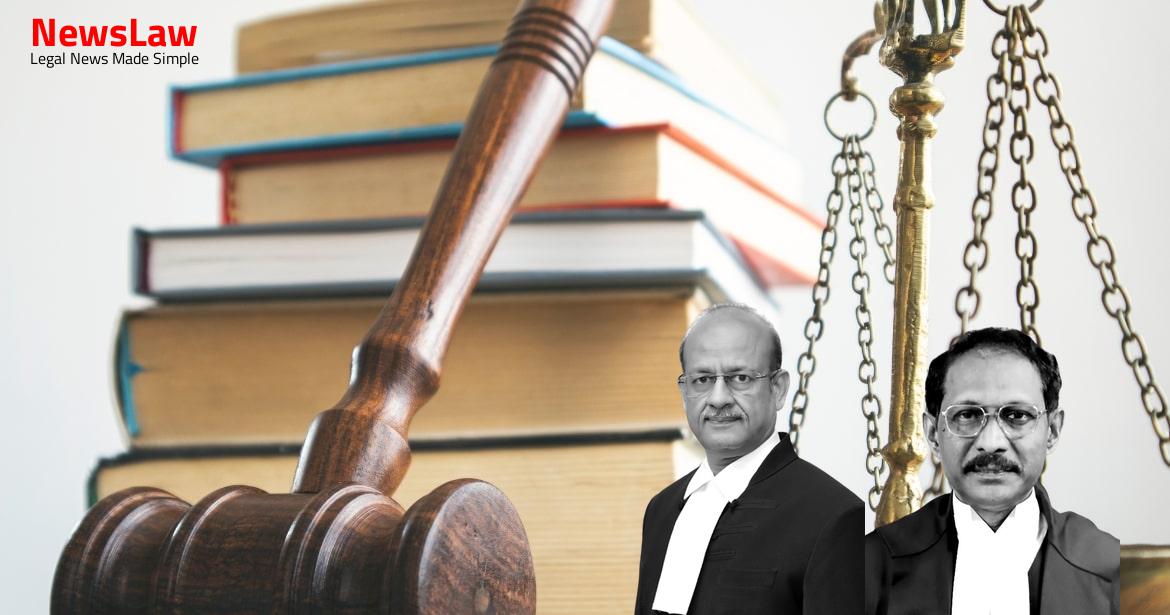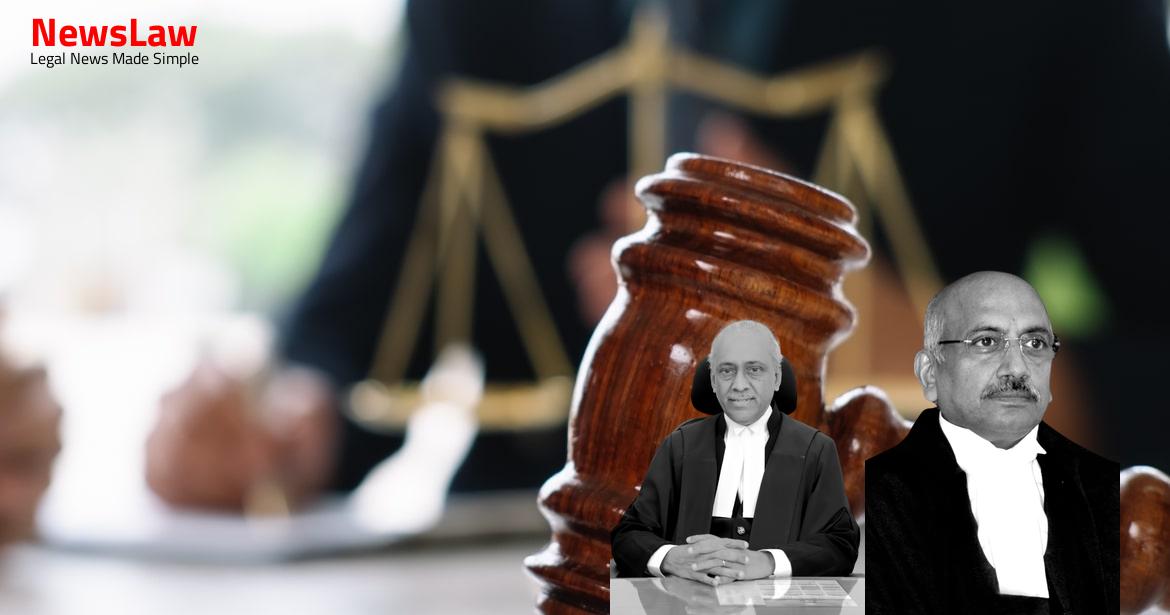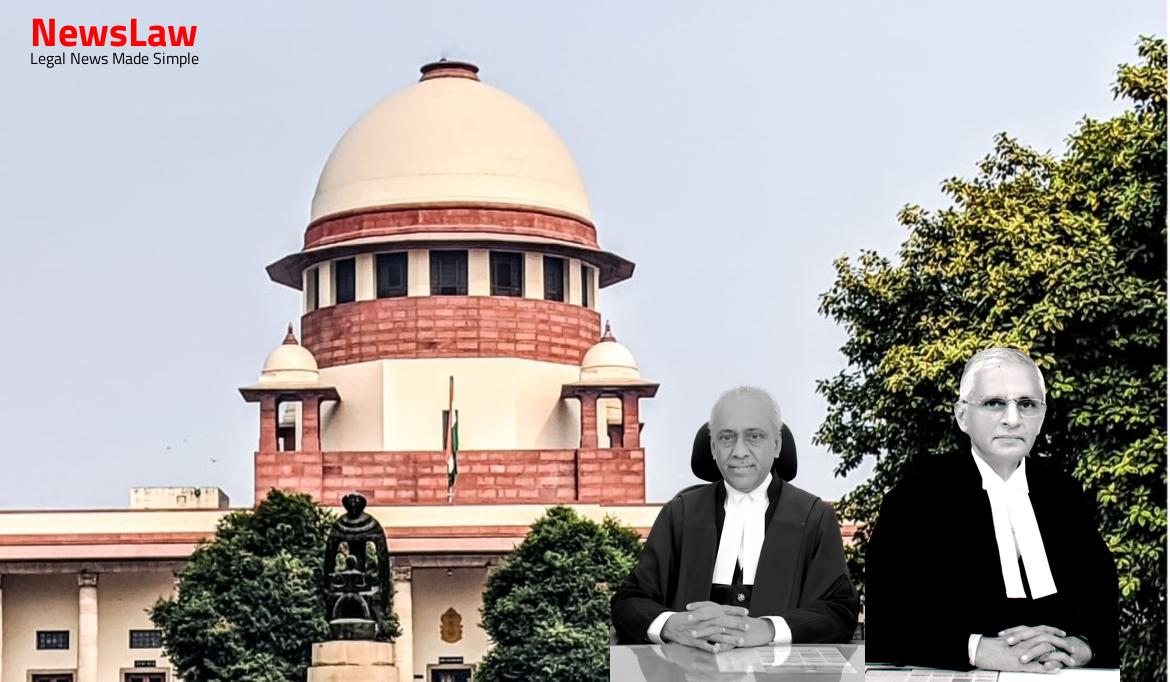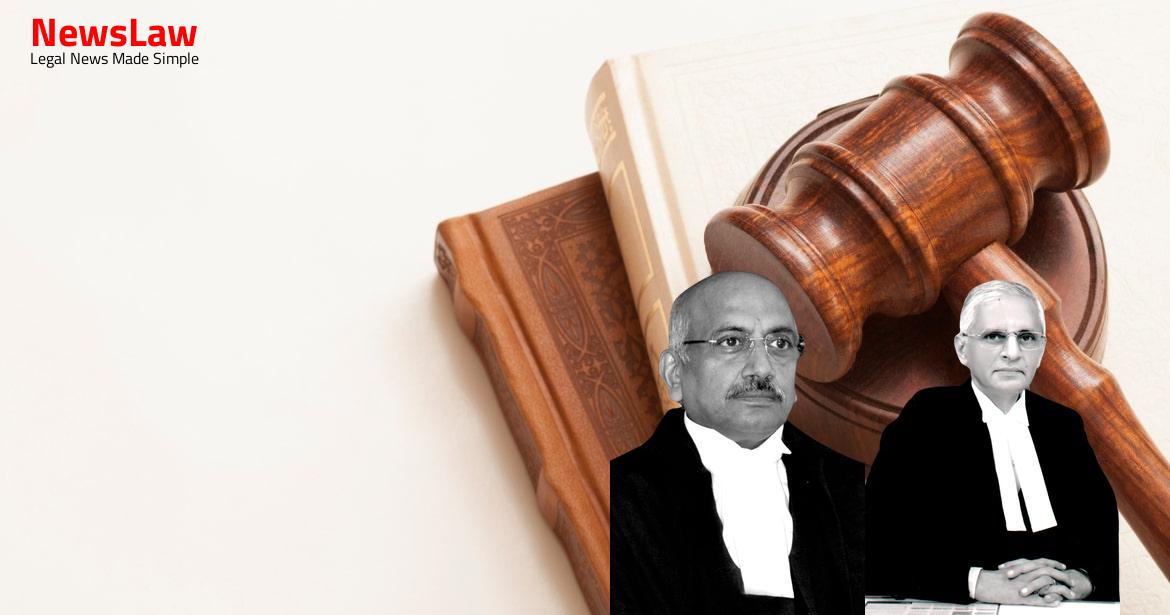Delve into the in-depth legal analysis of a contentious Will dispute, focusing on the Court’s scrutiny of pleadings, witness testimonies, and the genuineness of the Will. The significance of clear and specific responses in legal documents is highlighted, showcasing its impact on the outcome of the case. Stay tuned to unravel the complexities of this legal saga.
Facts
- The appellant no. 1 is the third wife of the testator.
- The appellant no. 2 is the daughter of the testator.
- The testator had approximately 8 acres of land and three houses.
- The suit property’s value was estimated to be around ₹ 16,000.
- Through the Will, the testator bequeathed about 3.5 acres of land to the plaintiff, stating she is like his daughter as she is his brother’s daughter.
- The Trial Court decreed in favor of the respondent/plaintiff, declaring the Will to be genuine.
- The First Appellate Court reversed the Trial Court’s decision in an appeal by the appellants, which was further overturned by the High Court in favor of the respondent.
Also Read: Prioritizing Child Welfare in Custody Cases
Arguments
- Learned counsel for the respondent argued that the execution of a Will in favor of a relative indicates the testator’s intention to deviate from the normal course of inheritance.
- The appellants challenged the High Court’s judgment, claiming that the Will was surrounded by suspicious circumstances and should be disregarded.
- The First Appellate Court’s findings were reversed by the High Court, which was deemed not perverse.
- The respondent, akin to a daughter to the testator, had been looking after his health due to his asthma and chronic cough.
Also Read: Legal Battle Over Property Partition
Analysis
- The health of the testator was discussed, with conflicting statements from different witnesses.
- The appellants were not actively involved in taking care of the property left by the testator after his death.
- The manner in which pleadings were filed in the Trial Courts was criticized for lack of specific para-wise replies.
- The Will left out the testator’s widow and minor daughter, causing confusion over their interests.
- The genuineness of the Will was questioned, with discrepancies in statements about the testator’s health and the witnesses’ accounts.
- The possession of the suit property, expenses for the testator’s last rites, and the balance property were key points in the analysis.
- The High Court’s judgement was upheld based on the evidence presented.
- The role of various witnesses, including attesting witnesses and the scribe of the Will, was scrutinized.
- The need for clear, para-wise responses in pleadings to avoid confusion and ensure proper legal process.
- The matter was further considered by this Court in Lohia Properties (P) Ltd., Tinsukia, Dibrugarh, Assam Vs. Atmaram Kumar after the 1976 Amendment Act in CPC.
- The existing Rule 5 of Order VIII of the CPC was renumbered as sub-rule (1) and three more sub-rules were added dealing with different situations where no written statement is filed.
- The issue regarding specific admission and denial of the pleadings was considered in Badat and Co. Bombay Vs. East India Trading Co.
- It was reiterated that Rule 3 of Order 8 requires the defendant to deal specifically with each allegation of fact not admitted as true.
- Rule 5 states that if an allegation of fact in the plaint is not denied in the written statement, it shall be taken as admitted by the defendant.
- The rule emphasizes that any allegation of fact must be denied specifically or by necessary implication, or there should be a statement that the fact is not admitted.
- Order 7 of the Code of Civil Procedure requires the plaintiff to include facts constituting the cause of action in the plaint.
- The plaintiff must also mention when the cause of action arose in the plaint.
- Additionally, the plaintiff should provide facts that demonstrate the court’s jurisdiction in the case.
- If a plea is not taken in a specific manner, the allegation shall be taken to be admitted.
- It is common for the Court to encounter situations where written statements or counter affidavits do not provide specific para-wise replies.
- Streamlining the process by ensuring specific para-wise replies may improve efficiency.
- The appeal in this case lacks merit based on the considerations discussed.
Also Read: Legal Analysis in Civil Appeal: A Summary
Decision
- The part concerning the RPC is dismissed.
Case Title: THANGAM AND ANR. Vs. NAVAMANI AMMAL (2024 INSC 164)
Case Number: C.A. No.-008935-008935 / 2011



